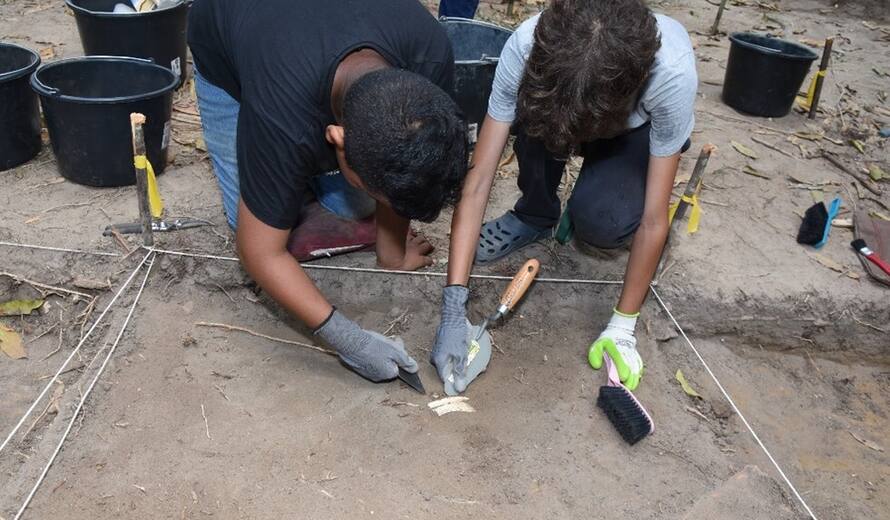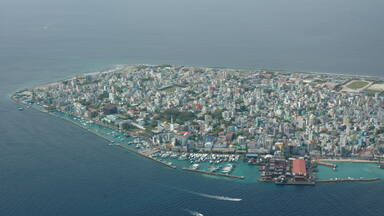Jodensavanne Archaeology Volunteer Project successfully completed
From 23 to 28 September 2024, the Jodensavanne Foundation organized an archaeology volunteer project at the Jodensavanne Archaeological Site, a UNESCO World Heritage Site since 2023. The Foundation organized this volunteer project for the second consecutive year under the coordination of Sushmeeta Ganesh, a junior archaeologist. Nineteen participants between 12 and 70 years old participated in this year's activity, four of whom were youngsters from the neighbouring Indigenous village of Redi Doti. The project was funded by the Dutch Embassy in Paramaribo, Suriname.
The aim of the volunteer project was to raise public awareness in general, and of the volunteers in particular, for the conservation, promotion and protection of this UNESCO World Heritage Site, by carrying out an archaeological excavation, and maintenance and conservation activities.
In the following days, maintenance and conservation work was carried out in three historic cemeteries of the Jodensavanne Archaeological Site, namely the Old Jewish Cemetery (Beth Haim Velho) near the mouth of the Cassipora Creek, and the Creole Cemetery and the Beth Haim of Jodensavanne.
The Jodensavanne Archaeological Site, Suriname's youngest World Heritage Site, was inscribed on the World Heritage List on 24 September 2024. To mark the one-year anniversary, a plaque was unveiled by Jo-Ann Misiekaba (Deputy Director of Tourism), Clifton Braam (Deputy Director of Culture) and Jenna Wijngaarde (Chairman of the Jodenavanne Foundation) in the presence of Michiel Bierkens, Deputy Ambassador of the Netherlands.
The Jodensavanne Foundation can look back on a successful volunteer week. As a token of appreciation, volunteers and supervisors each received a t-shirt with the inscription "Jodensavanne Archaeology Volunteer Project 2024" and a certificate of appreciation for supporting the work of the Jodensavanne Foundation.
The UNESCO/Netherlands Funds-in-Trust (NFiT) is presently supporting a project at Jodensavanne for the archaeological excavation of the remnants of a cook house near the village plaza and of the main house to which the cook house belonged. The project supports research on the residential history of the houses and their location within the village square of Jodensavanne and the interactions between Jews, Indigenous and African enslaved people. Remnants excavated will be presented to visitors as a new attraction of the World Heritage site of Jodensavanne Archaeological Site.



